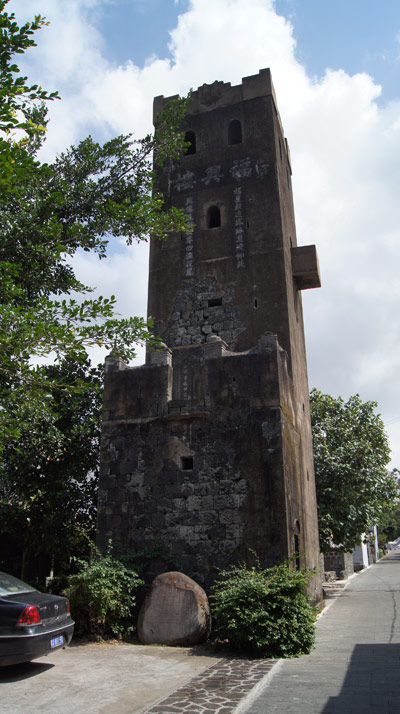Happy villages
 |
|
A 20-meter-tall guard tower built at the beginning of the 20th century, in Meishe. |
Attracted by the geological park, tourists have poured in and Meishe villagers have built guesthouses and restaurants. During the National Day holiday, there were more than 6,000 visitors to Meishe.
Inspired by the popular online game Happy Farm, a resort was built. It has holiday cottages, restaurants and bars and organic fruit and vegetables fields.
These improvements have in turn made villagers realize the importance of environmental protection.
"We pick up garbage and livestock droppings and cut trees according to quotas. The village is like a garden now," says Wang Jianping, who grows huanghuali trees in his courtyard.
"We keep the big water vats and though we don't use them any more they do make a good story for the tourists."
'Starry' village
In Haikou's Meilan district, near Dongzhai Harbor is a village called Xinghui, which means "starry".
About 400 years ago a violent earthquake shook Dongzhai Harbor and 72 villages sank into the sea - forming the country's only undersea village cluster. As the tide retreats, relics from the village appear like stone coffins.
Xinghui villagers have been fishermen for generations and worshipped the goddess Mazu. Nowadays, thanks to tourism, they have become rich after opening seafood restaurants.
Xinghui is also known for the longevity of its people, such as the 95-year-old Liu Jinmei. Her husband died when she was 27 and she raised her two children on her own. Her son works in the city and her daughter got married in France.
Liu keeps busy by running a guesthouse for tourists who visit the undersea village and "sea forest" - a 56-square-km mangrove swamp, which became a national reserve in 1980.














